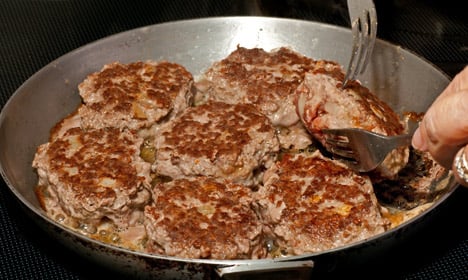The Randers City Council voted 16-15 on Monday night to require the city’s public institutions to serve pork products.
The vote was part of a long-running debate in Denmark, with one side arguing that Danish values are under attack from multiculturalism and the other side maintaining that the whole situation is a nonexistent issue that has made an problem where there wasn’t one.
The so-called ‘meatball war’ (frikadellekrigen) arguably hit its apex in 2013, when the summer’s slow news cycle was dominated by a debate on whether or not public institutions should bar pork in deference to Muslim children.
While there are no official numbers on how many public institutions that ban pork, in 2013 it was estimated to be about 30 out of 1,719.
The ‘meatball war’ was revived last week when Integration Minister Inger Støjberg shared a false anecdote about an Aalborg family who pulled their child out of a public daycare when it banned pork. Aalborg officials and the institution in question both denied that a ban was ever put in place.
On Monday night in Randers, city officials narrowly approved a proposal from the Danish People’s Party and Venstre to require all institutions to ensure that pork is part of their menus.
“We will ensure that Danish children and youth can have pork in the future,” DF councilman Frank Nørgaard told Randers Amtsavis.
“We just want to ensure pork in our institutions for those who want it. This isn’t about a general distrust of our institutions’ leaders, but more and more places around the country are trying to sneak through [policies that say] there shouldn't be pork served in the institutions,” Nørgaard added.
Councilman Mogens Nyholm of the Social Liberals (Radikale), who voted against the proposal, said the idea of defining ‘Danish food culture’ is absurd.
See also: Can a meatball define a culture?
“What is Danish food culture? This right here screams to the heavens of emptiness. This is a pseudo-problem that doesn’t exist in Randers. We don’t have any institutions where you can’t eat a hot dog if you want,” he told Randers Amtsavis.
According to Randers Amtavis, the local blow-up of the meatball war began last spring when it was discovered that one daycare institution in the city did not include pork on its lunch menu.
City councilman Kasper Fuhr Christensen said that there was no record of a single parent complaining about the lack of pork and told Jyllands-Posten that the whole thing was “a problem that was created out of thin air”.
The term frikadellekrigen refers to the traditional Danish meatballs known as frikadeller. While the meatballs can be made in a variety of different ways, the most traditional recipe uses a mixture of pork and beef.


 Please whitelist us to continue reading.
Please whitelist us to continue reading.